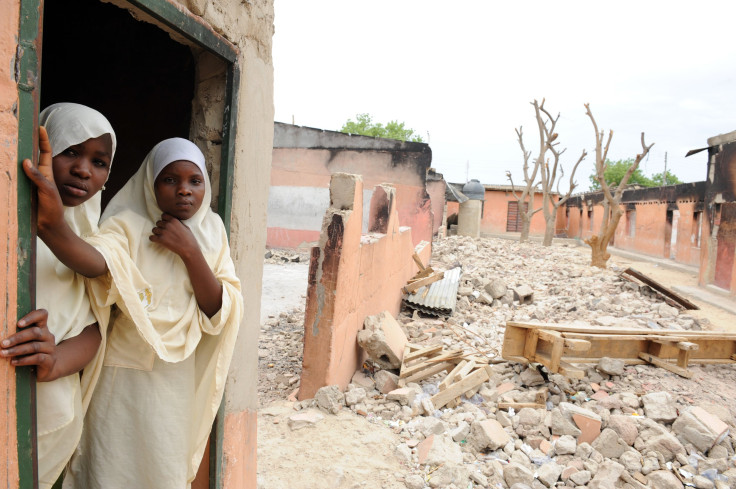Boko Haram Kills 45 More Civilians; What's Happening In Nigeria?

Another attack by terrorist organization Boko Haram has left 45 people dead in Nigeria, this time in the northeastern village of Azaya Kura, Reuters reports. The latest attack happened on Wednesday, the news agency said, quoting a military source who said that Boko Haram militants stormed the village in response to Nigerian military officials killing four members in an earlier gun fight. "The Boko Haram militants mobilized and came on a reprisal," the source told Reuters.
Bakura Moh'd, a resident of the village who fled from the northern region because of the violence, told Reuters he was told by a family member that the insurgents came to the village at around noon and rounded up people to kill. "They tied peoples' hands behind their backs and slit their throats like animals," Moh'd said.
A number of states in the region have been under a state of emergency and tear gas was fired inside Nigeria’s parliament on Thursday after the speaker of the country’s National Assembly climbed over a security fence in an effort to enter the chamber. Lawmakers were discussing whether to extend the state of emergency.
The state of emergency was declared in May 2013 by Nigerian President Goodluck Jonathan for the northern states of Borno, Yobe and Adamawa. Boko Haram, which has declared loyalty to the Islamic State militant group, recently seized control of Chibok, a city where the group kidnapped 276 schoolgirls in April, but was beaten back by civilian militants and government forces.
Nigeria's main opposition party, the All Progressives Congress, has accused the ruling Peoples Democratic Party of not doing enough to stop Boko Haram, essentially allowing the terror organization to run rampant through the country’s northeast. Despite having Africa’s largest military, Nigerian forces haven't been able to quell the fundamentalist group that Human Rights Watch says has killed more than 2,000 civilians this year.
Opposition leaders insist the military’s tepid response to the group is owed to the fact that the three states affected by the insurgency are voting blocs for the APC.
"The PDP [Peoples Democratic Party] is sacrificing the lives of our brothers, of our sisters, of our children for very selfish political ends," John Oyegun, national chairman of the APC said during a rally in the Nigerian capital of Abuja. "They have allowed the insurgents to take over substantially controlled APC states.”
© Copyright IBTimes 2024. All rights reserved.












